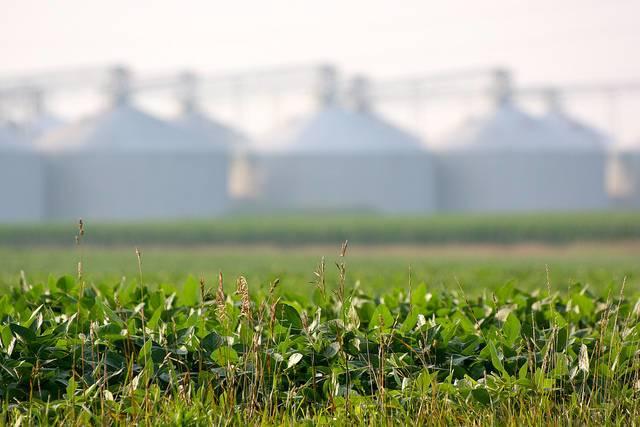
Earlier this year, an investigative piece in the Washington Post revealed that some organic milks may not deliver the health, animal welfare and environmental benefits shoppers expect. If that already has you rattled, another bit of discouraging news may further alter your shopping habits.
It turns out that some “organic” corn and soy imported into the U.S. does not meet USDA organic standards, the Washington Post reported in an other investigation.
As much as half of the organic commodities American food companies use is imported, including soy and corn. And where those products are used, which is usually within a company's supply chain as ingredients or feed, imposes countless problems for the food industry.
On one hand, the organic edamame purchased at a store such as Trader Joe’s or Costco is probably safe. The same goes for any other frozen or canned vegetable product you have stored in your kitchen.
The trouble, reports Peter Whoriskey of the Post, is that shipments of soy and corn on their way to become animal feed for organic food companies often don't meet organic standards. The USDA requires producers of organic foods such as eggs, meat and dairy to use organic feed – which is why there is often a sizable price difference between conventional and certified organic food products.
But the problem is the paper trail. Companies that import certified organic products must keep receipts and invoices. But the USDA does not require companies to trace these products back to the farms at which these crops were grown. Meanwhile, records that Whoriskey and his team at the Post were able to obtain revealed high levels of residue on products grown in Ukraine and China. Yet dubious paperwork some importers had submitted allowed them to fetch a far higher price for the product due to the “organic” label on its products.
The USDA claims to take a harsh stand against companies that flout its organic certification rules. The agency says that the use of fraudulent documents to market or sell crops as organic can result in fines of up to $11,000 per violation. And the agency publicly posts a list of companies found to violate its rules; it was last updated on Monday.
The problem, however, is that such enforcement measures are weakened by spotty inspections. Farmers can hire the inspection companies of their choice, and they are often scheduled days or weeks ahead, which eliminates the chance of any spontaneous visits. Furthermore, testing for pesticides is not a standard practice, and is only conducted sporadically. The result, said Andrew Porterfield of the Genetic Literacy Project, is that as many as 43 percent of the organic foods sold in the U.S. could have substances prohibited by USDA organic guidelines.
Everyone is hurt by the USDA’s lack of rigor when it comes to ensuring that organics are actually organic by definition. Farmers and ranchers in the U.S., already squeezed by thin margins, find it tough to compete against imports that are often cheaper and may not even be a genuinely organic food product in the first place. Food companies and retailers have their brand reputation put at risk because of doubts sowed within their supply chains. And consumers are left wondering if the extra money spent on supposedly certified organic products was a waste – not to mention the fact that they and their families could have been exposed to chemicals they thought would never occur due to the premiums they had paid for supposedly safer foods.
Image credit: Kevin Dooley/Flickr

Leon Kaye has written for 3p since 2010 and become executive editor in 2018. His previous work includes writing for the Guardian as well as other online and print publications. In addition, he's worked in sales executive roles within technology and financial research companies, as well as for a public relations firm, for which he consulted with one of the globe’s leading sustainability initiatives. Currently living in Central California, he’s traveled to 70-plus countries and has lived and worked in South Korea, the United Arab Emirates and Uruguay.
Leon’s an alum of Fresno State, the University of Maryland, Baltimore County and the University of Southern California's Marshall Business School. He enjoys traveling abroad as well as exploring California’s Central Coast and the Sierra Nevadas.














